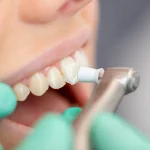Key Takeaways:
- Identify the common signs of substance abuse and addiction.
- Recognize the significance of getting expert assistance as soon as possible.
- Learn about the impact of addiction on health and relationships.
- Find out how to take the first steps towards recovery.
Understanding Substance Abuse and Addiction
Addiction and substance misuse are complicated illnesses that can have a significant impact on both the sufferer and those close to them. Initially, the craving for the substance may be sporadic, but it might eventually become overwhelming. Timely intervention depends on the ability to recognize the indicators of addiction. Websites like Pinnaclerecoveryut.com offer valuable information and support for those seeking help.
Addiction is not limited to illicit drugs; it can also involve alcohol, prescription medications, and even behaviors like gambling. Understanding the broad scope of addiction helps identify when someone might need help. Early recognition and intervention can prevent the situation from worsening.
Physical and Behavioral Signs
The physical and behavioral signs of addiction can vary widely but often include noticeable changes in appearance and behavior. These signs can include sudden weight loss or gain, neglect of personal hygiene, and frequent illnesses. Behavioral signs might include mood swings, secrecy, and a noticeable decline in performance at work or school.
It is crucial to remember that every person uniquely displays addiction symptoms. To make matters more complicated, substance addiction has been linked to serious mental health problems like anxiety and depression, according to a CDC report. Early detection of these symptoms can greatly influence how well a patient responds to treatment and heals.
Impact on Health and Relationships
Substance abuse can have severe consequences for both physical and mental health. It may result in life-threatening overdoses, mental health issues, and chronic illnesses. Additionally negatively impacted are relationships, which frequently result in tension and conflict amongst friends and family.
According to the National Institute on Drug Abuse, addiction can result in social isolation, trouble finding and keeping a job, and an increase in conflict. These components could come together to create a vicious cycle that makes recovery more challenging. Early detection of these impacts can provide timely intervention and support.
The Importance of Early Intervention
To effectively treat substance misuse and addiction, early intervention is essential. An early intervention increases the likelihood of a full recovery. Waiting too long can worsen existing health problems and complicate the healing process.
The National Institutes of Health state that early intervention programs are quite successful in stopping the development of addiction. To provide both short-term assistance and long-term answers, these programs frequently incorporate education, counseling, and support groups.
Steps to Seek Help
It can be difficult to start the healing process, but it is necessary. Start by admitting that there is an issue and asking friends and family for assistance. Expert assistance is essential, and hospitals provide thorough treatment plans customized to each patient’s need.
Consulting a healthcare provider for a thorough assessment is a good starting point. They can recommend specialized treatment options and share resources to support recovery. Engagement in support groups and therapy sessions can also provide a strong foundation for long-term sobriety and wellness.







